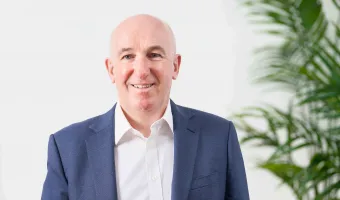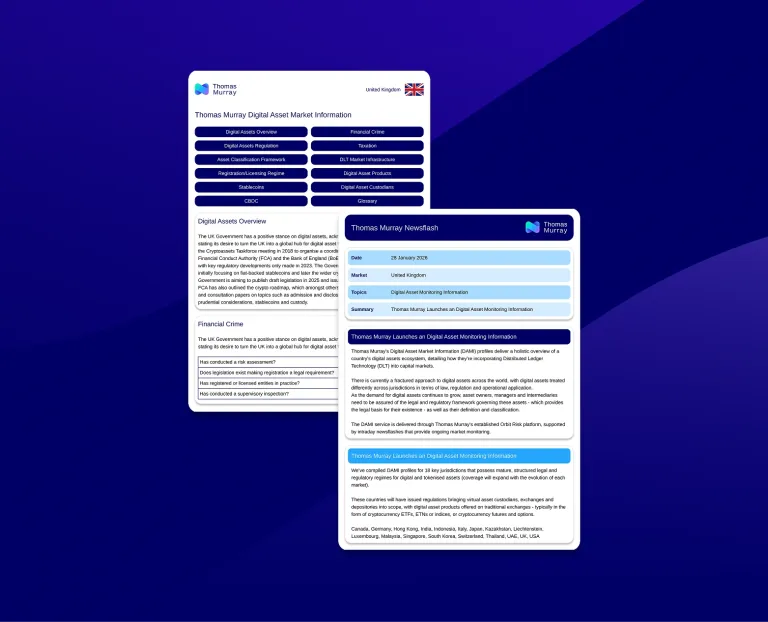
About the author
Derek Duggan
Managing Director | Banks
Derek Duggan is Thomas Murray’s Managing Director, Banks. He originally joined Thomas Murray in 1995 as Head of Information Services. Derek now leads the large team that delivers our banking solutions. He’s responsible for our banking line of business, including all aspects of network management, client relationship management and sales.
The world has changed dramatically over the last few years, with rapid technological developments and geopolitical challenges. The financial markets are in the thick of this shifting landscape. As 2023 draws to a close, Derek Duggan looks at the trends all Network Managers should be ready for.
Post-trade and sub-custodian monitoring updates
“Network Managers should increasingly become agents of change, as they navigate new complexities and identify opportunities for key stakeholders across the sub-custodian network.” That’s the view of Northern Trust’s Justin Chapman, as he surveys the post-covid world.
Our Network Managers have found that the return to onsite monitoring after the lifting of lockdowns has increased transparency. Network Managers have greater insight into the strategic direction of sub-custodians, which is becoming more focused on:
- technological capabilities;
- cyber; and
- progress with data integration goals.
The pandemic has also spurred a shift to increased digitisation, which is benefiting both bank and market processes. There is little to differentiate the core custody services provided by sub-custodians – however, the custody landscape is evolving, which means Network Managers need to adapt their monitoring to review different risks.
Cash correspondent monitoring
Global regulations and third-party governance practices have made it imperative to supplement financial oversights with an additional operational risk assessment of cash correspondents. Our collaborative and industry-driven approach is a lens on existing providers, and it provides benchmarking of where groups sit relative to peers and new market entrants.
This service has always been essential, and we’re seeing more demand for it after the collapse of Silicon Valley Bank in the US and the merger of Credit Suisse and UBS, which creates a lack of CHF providers. This intensified focus on concentration risk will continue for some time.
Financial market infrastructure
We are in a period of heightened market volatility, thanks to increased economic and political risks. Thomas Murray’s advisory teams are working with FMIs that need better ways to support market participants through the turbulence, and unsurprisingly risk management practices are a recurring theme.
The further development of enterprise risk management in FMI groups will come in response to three main factors. The first is a rapidly changing regulatory environment – this is a worldwide trend, but the EU’s MiFID III and Digital Operational Resilience Act (DORA) will both have far-reaching implications.
The second factor is the growing number of FMIs with more diversified business models, for example the scope of non-financial risk management will need to expand so it covers a business line in data and analytics. And, finally, there is a move towards very specific areas of risk focus (such as IT and cyber risk as a distinct part of third-party risk management).
Fund service providers
Private equity managers and administrators are also dealing with increased regulatory activity (for example, the SEC rules that took effect in August). Much of this activity aims to increase transparency in the funds industry. This is not just about ESG considerations: the geopolitical climate demands greater enforcement of anti-money laundering legislation and monitoring of sanctions lists.
At the same time, an ever-increasing volume of data must be supplied to a diverse range of stakeholders. Our SaaS teams see first-hand that data management is becoming key to avoiding reputational risk and remaining compliant in a shifting regulatory landscape. Those Fund Service Providers still relying on manual processes are becoming increasingly rare as the industry embraces automation for all aspects of due diligence, data management and data analysis.
A version of this article was originally published in Issue 12 of The Network Forum’s TNF Journal







